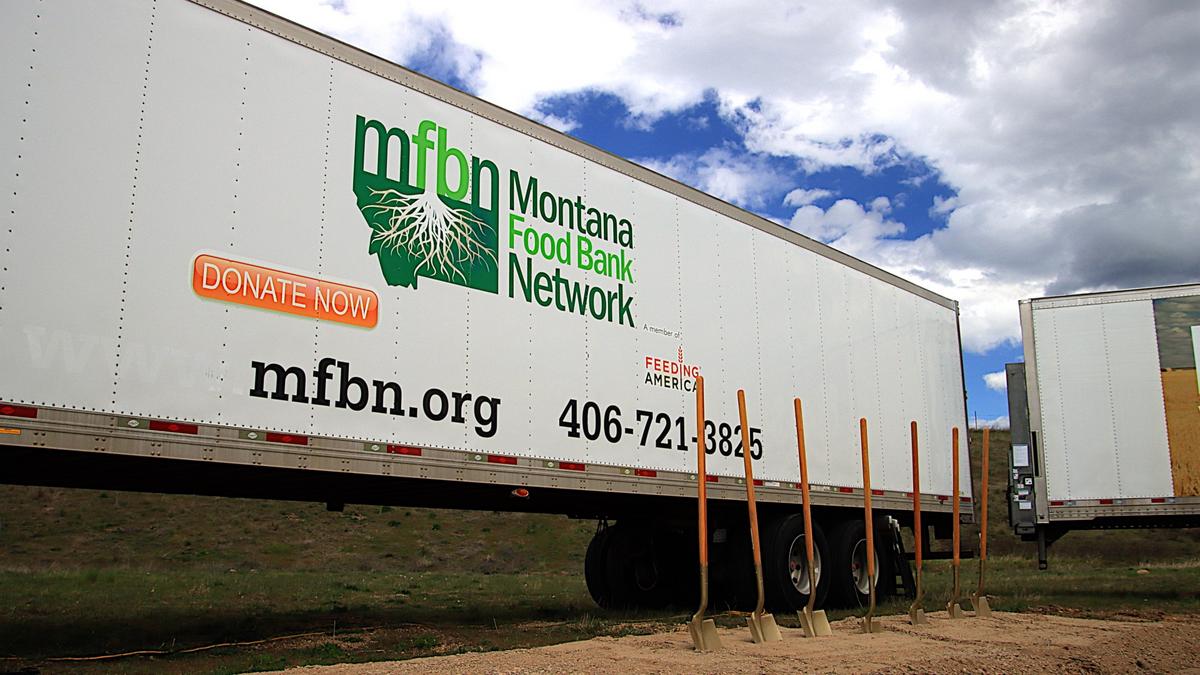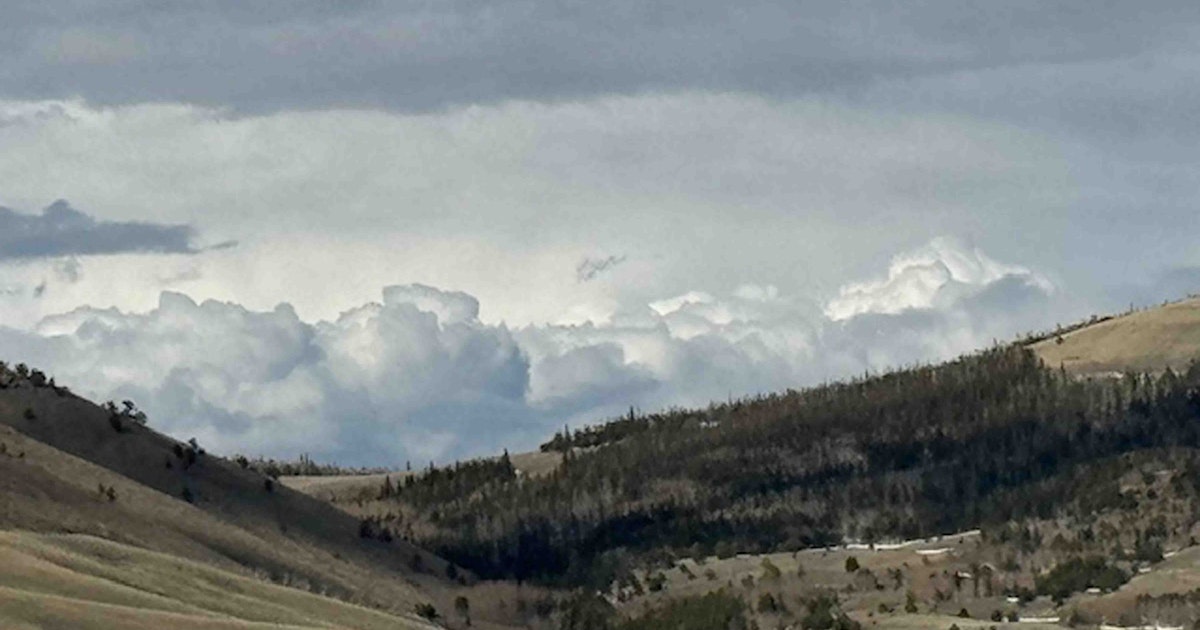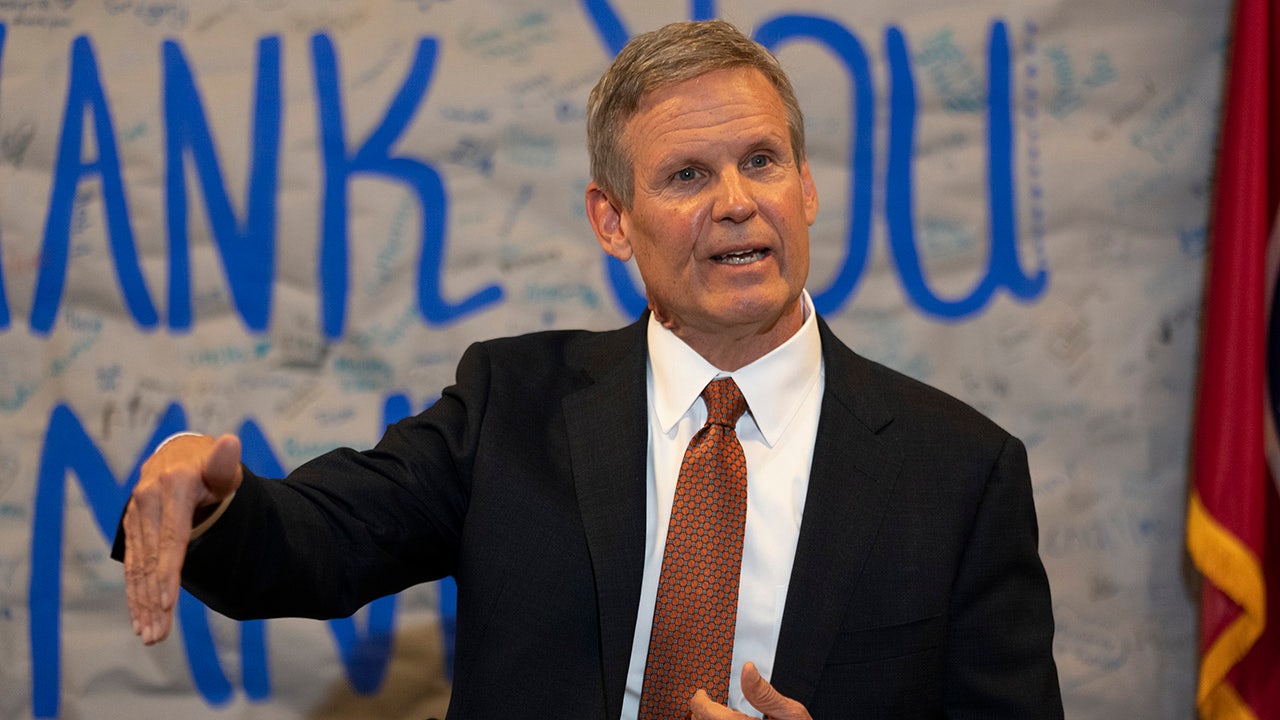Montana
In First Visit to Montana, Author Min Jin Lee to Give Talk at Flathead Valley Community College – Flathead Beacon
In explaining why she’ll be taking her first trip to Montana to speak at Flathead Valley Community College for an event that will be free to students of all grade levels, the celebrated novelist and writer Min Jin Lee begins to describe herself as an introvert who happens to receive lots of invitations to things.
As is the case with many introverts – people who gravitate towards quiet, solitude, and more limited social engagements – accepting invitations, and then attending big events can be a draining, exhausting experience, and so Lee said she tries to be selective.
In 2024, that has included participating in a January panel with the writers Colm Toibin and Rumaan Alam at the Leonard Nimoy Thalia Theater in New York City to discuss the 100th anniversary of E.M. Forster’s “A Passage to India,” being honored in February at Columbia University’s Weatherhead East Asian Institute’s 75th Anniversary Gala, and after her Kalispell talk, another talk at the University of Utah, before her public engagements subside until a May discussion at the Museum of Fine Art in Boston called “Min Jin Lee: Writing and the Korean Wave.”
A quick spin through Lee’s professional biography puts into some perspective why these invitations arrive. Her 2007 debut novel, “Free Food for Millionaires,” landed on top 10 books of the year lists for The Times of London, NPR’s Fresh Air and USA Today, and was a national bestseller. Her second novel, “Pachinko” was published in 2017, and again earned her accolades and nominations. It was a finalist for the National Book Award for fiction, and in addition to being a New York Times bestseller and an international bestseller translated into 35 languages, it was one of the New York Times’ 10 Best Books of the Year, and landed on similar lists for BBC and the Canadian Broadcasting Corporation, while also appearing on best books of the year lists for NPR, PBS and CNN. As Lee told the Beacon, she recently finished writing the draft of her third novel, and is currently working on rewriting it.
Lee has also received prestigious fellowships, including from the Guggenheim Foundation, the Radcliffe Institute of Advanced Study at Harvard, and the New York Foundation for the Arts. A member of the New York Foundation for the Arts Hall of Fame, and the New York State Writers Hall of Fame, and the winner of the 2022 Manhae Grand Prize for Literature in South Korea, Lee is currently the writer-in-residence at Amherst College and recently served as the editor of the 2023 edition of the Best American Short Stories series.
Michael Luo, an editor for The New Yorker magazine, described her in a 2022 piece as a writer whose gift is an ability to “write sweeping, magisterial books that take on ponderous political themes – like the Korean diasporic experience, the invisibility of marginalized groups in history, the limits of assimilation — and to make their unhurried, quiet intrigues read like thrillers.”
As for why she chose to accept an invitation to come to FVCC, Lee said there were two main reasons. On the one hand, she was curious to finally see Montana and meet Montanans for the first time, and figure out just how different things might be from New York City, where she has lived for much of her life.
“I’m from New York City, I was born in Seoul, I’ve lived in Tokyo … it’s very hard to impress me with a city … I think for me Montana is very glamorous. Ohio is very glamorous to me. Wyoming is very glamorous to me, because I think, ‘Oh, I don’t know this.’” Lee said.
As someone who steeps themselves in early 19th and early 20th century American authors – something she explained as part of her ongoing study of omniscient narration – Lee said that she’s also drawn to the South, and described an appreciation for opportunities to visit places where people significant to her once lived. That has included visiting the home in Ketchum, Idaho, where Ernest Hemingway spent his last days; and also a trip to Warrensburg, Missouri, to stand in the same auditorium where her late uncle John Y. Kim, who sponsored her family’s immigration to the United States, studied as a college student at the University of Central Missouri.
But beyond her continued efforts to see and in some way understand parts of the United States with which she is less familiar, Lee emphasized that she is coming to Kalispell because she is big proponent of college education in the United States.
“It’s something that I believe in very strongly,” she said. “I thought it’d be very cool connect to that audience, in particular because very often when you hear about Montana in New York City, very often you focus on elite people who kind of fly in and fly out, and just take advantage of the nature part, but I wanted to meet people who are from Montana, who care about Montana, who feel connected enough to go to community college, and to feel a sense of mission there.”
Her talk will be about failure, struggle, why she does what she does, and writing as a craft.
“It’s what I do better than most people,” Lee said of failure. “I’m really good at humiliation. And I think if I can teach you how to feel better, I’ve done something that’s worth taking a plane trip over.”
For people who are skeptical that Lee’s talk will have relevance to those whose interests don’t lie in reading and writing, she would probably argue otherwise. While she has concerns about the future of reading, or more specifically reading deeply, as it relates to the technologically driven distractions that are so widespread in today’s world, Lee said that she has a somewhat cynical view of why reading will continue to be of importance in the world. In short, she said that in her experience, powerful people read, and read often.
“This is my little TED talk for my students, very often, which is if you want to get ahead in life, if you want to understand human motivation, if I were you, I would read the wisdom garnered from the best kinds of books that you can possibly find,” Lee said. “Because it’s all there.”
Min Jin Lee’s talk at FVCC is part of the college’s WCC Speaker Series. The event is scheduled to start at 7:30 p.m. on March 18 at the Wachholz College Center. The event is supported, in part, by the Broussard family. For more information and to get tickets, visit https://www.wachholzcollegecenter.org/Online/default.asp. Free tickets are available for students of all grade levels.

Montana
MT Supreme Court rules laws, including one on transgender athletes, violate Board of Regents' authority

HELENA — The Montana Supreme Court has upheld a lower court ruling that found three bills from the 2021 state legislative session overstepped onto the authority of the Montana University System Board of Regents.
The most prominent of the bills was House Bill 112, which banned transgender female athletes at public schools from participating in women’s sports. A majority of justices agreed that bill was unconstitutional as applied to colleges and universities.
In addition to HB 112, the court also ruled against:
· House Bill 349, which limited how colleges and universities could discipline students for certain speech and when they can deny recognition to student organizations.
· A section of Senate Bill 319 that would have required student organizations that also function as political committees – specifically the advocacy group MontPIRG – to be funded through a fee that students can pay if they opt in, instead of one they are required to pay unless they opt out.
A large group of individuals and organizations filed suit over these bills. In their arguments, the plaintiffs made the case that the Montana Constitution gives the Board of Regents full authority to oversee the state’s university system, and that the bills infringed on that authority. In 2022, a district judge in Gallatin County sided with the plaintiffs.
Attorneys for the state argued the plaintiffs did not have legal standing to challenge the laws. On HB 112 specifically, they said the law was not targeting the Board of Regents or universities specifically, and that the board had not established a policy on transgender athletes.
Justice Ingrid Gustafson wrote in her ruling – joined by Chief Justice Mike McGrath and Justices Laurie McKinnon and Jim Shea – that the plaintiffs had established standing by showing they would be harmed by the bills, and that they could make the argument the bills unconstitutionally infringed on the Board’s authority even if the Board itself did not sue.
Gustafson said the Board of Regents had essentially expressed a judgment on how to handle transgender athletes by linking participation to NCAA and NAIA requirements. She said HB 112 does address elementary and high schools as well as colleges and universities, but that didn’t mean it wasn’t infringing on the Board.
“The Legislature cannot avoid Article X, § 9’s grant of power to the Board by simply adding non-MUS institutions to the law,” she wrote.
Gustafson also said, because the state had focused its arguments on stating HB 112 was not unconstitutional, they had essentially conceded on the other two bills, so the district court’s ruling against them should stand. The state said they centered their defense on the merits on HB 112 for briefing reasons, not because they were conceding the other bills were unconstitutional.
While four out of seven justices agreed to find the bills unconstitutional, they were split on whether the plaintiffs were entitled to receive attorney fees from the state. The district judge had ruled against the plaintiffs’ request. Because a majority of justices didn’t agree fees were warranted, that decision remained in place.
Justice Jim Rice wrote a dissenting opinion, in which he argued the plaintiffs did not have standing in the case and that only the Board of Regents itself should have had the authority to file suit claiming an infringement of its authority. Justice Dirk Sandefur agreed with Rice, but added his own short opinion saying that, if the plaintiffs did have standing, he would agree that the bills were unconstitutional as the majority had ruled.
Read the justices’ full opinions below:
Montana
Federal judge blocks Montana law on changing voter registrations
HELENA — A federal judge has blocked Montana from enforcing one section of a 2023 law that established requirements for voters changing their registration.
Last year, the Montana Legislature passed House Bill 892, sponsored by Rep. Lyn Hellegaard, R-Missoula. Supporters said the bill was intended to ensure people couldn’t vote twice in one election. While Montana already had a law in place saying no one could vote more than once in a single election, HB 892 added a specific prohibition on voting once in Montana and in an “equivalent election” in another state.
One provision of HB 892 said voters can’t “purposefully remain registered to vote in more than one place” and that they must provide their previous registration information when registering to vote at their new location.
MontPIRG and the Montana Federation of Public Employees sued, saying that language went beyond the goal of stopping double voting and left voters at risk of criminal penalties even if they never intended to vote twice. They argued the provision wasn’t clear about what was required of voters, and that some had legitimate reasons they might have registrations in more than one place.
Attorneys for the state, defending HB 892, said the law has been in effect and there hasn’t been any evidence it’s interfered with political participation, and that it would be a mistake to change the rules so close to the 2024 election.
U.S. District Judge Brian Morris said in a ruling Wednesday that the plaintiffs had shown a plausible case that the language was too broad. He put a preliminary injunction in place to stop the state from enforcing only the section on multiple registrations, allowing the rest of HB 892 to remain in effect. Morris said in his ruling that officials had testified that section wouldn’t substantially change the voter registration procedure in Montana, so temporarily blocking it wouldn’t create confusion for voters in this election.
Read the full ruling below:
Montana
Celebrating a New Way to Feed Montana

Administrators of the Montana Food Bank Network say efforts to feed the hungry across the Treasure State are taking a major leap forward, as the agency finally commences construction on a new warehouse and headquarters.
“We’re so excited to have you join us and help us celebrate what this new facility is going to do for MFBN.”
Montana Food Bank Network CEO Gayle Carlson was beaming Thursday, as she and her dedicated staff, along with dozens of supporters and partners, gathered to break ground on the long-awaited warehouse and distribution center, completing a goal first launched in 2019.
MFBN CEO Gayle Carlson was all smiles Thursday; Dennis Bragg photo
New warehouse west of Missoula
MFBN leaders had discussed several options for the new warehouse, but felt remaining in Missoula was the best strategic decision for the long term.
“You know Montana’s a big state, and when you’re the only statewide food bank serving this area has massive challenges and a lot of it is the pressure of working out of a facility in one location. We have to cover that entire state from Missoula, and so our core facility has seen its better days.”
READ MORE: Over 100,000 Montanans Are Food “Insecure”
Dennis Bragg photo
New opportunities to feed 1 in 12 Montanans coping with hunger
Following a blessing of the ground with tribal representatives, Carlson and the others grasped ceremonial shovels and launched Montana’s hunger campaign into a new future, filled with new opportunities. Carlson and her team say the new facility will improve efficiency, providing more room for storing food when it becomes available from national sources, and giving local food pantries a place to store donations, especially from local sources.
Artists’ rendering of the new warehouse; MFBN
Rendering of the new warehouse and HQ in Missoula; MFBN photo
Attention will now focus on the public campaign to raise additional funds for the new facility.
Construction is slated to take 14 months.
LOOK: Best counties to retire to in Montana
Gallery Credit: Stacker
-

 Movie Reviews1 week ago
Movie Reviews1 week agoMovie Review: The American Society of Magical Negroes
-

 World1 week ago
World1 week agoIf not Ursula, then who? Seven in the wings for Commission top job
-

 News1 week ago
News1 week agoGOP senators demand full trial in Mayorkas impeachment
-

 World1 week ago
World1 week agoCroatians vote in election pitting the PM against the country’s president
-

 World1 week ago
World1 week ago'You are a criminal!' Heckler blasts von der Leyen's stance on Israel
-

 Movie Reviews1 week ago
Movie Reviews1 week agoPon Ondru Kanden Movie Review: This vanilla rom-com wastes a good premise with hasty execution
-

 Politics1 week ago
Politics1 week agoTrump trial: Jury selection to resume in New York City for 3rd day in former president's trial
-

 Kentucky1 week ago
Kentucky1 week agoKentucky first lady visits Fort Knox schools in honor of Month of the Military Child















